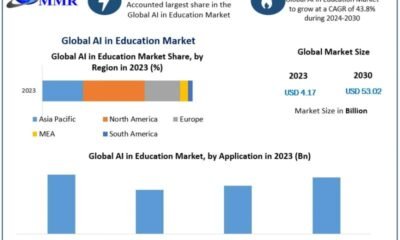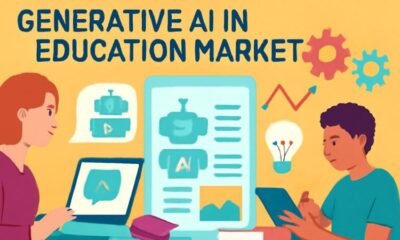Artificial intelligence (AI) is often criticised for ripping off artists, but the technology is now being used to combat fake copies of works by the Canadian artist Norval Morrisseau (1932-2007) that have flooded the market over the past two decades.
More than 6,000 pieces were produced and fraudulently sold as authentic works by the Ojibwe artist to collectors worldwide, with financial losses estimated to exceed C$100m ($72.5m). The trial of Jeffrey Cowan, the last of the suspected fraudsters in the tangled web of Morrisseau forgery rings, began this week. Two other men who pleaded guilty to participating in what the Ontario Provincial Police described as “the biggest art fraud in world history”, were each given a conditional sentence of two years less a day in August and September.
In a unique case of fighting fakes with fakes, the Montreal-based start-up Acrylic Robotics announced in July that, in partnership with the Norval Morrisseau Estate, its robots will reproduce five Morrisseau paintings and make the copies available for purchase.
Norval AI
“We have created our own artificial intelligence called Norval AI to help determine the probability of an authentic Norval Morrisseau painting,” Cory Dingle, the Morrisseau estate’s executive director, tells The Art Newspaper. “It has grown to do many other functions that will help with museums seeking provenance as well as law enforcement—such as catching the person who painted the fraudulent work.”
The idea of developing an AI authenticator began in 2023, when Dingle met Stephan Heblich, an economics professor at the University of Toronto, and Clément Gorin, an associate professor at the Université Paris 1 Panthéon-Sorbonne.
“Clément and I were just two art-loving economics professors who are using the latest deep learning and visual recognition techniques to analyse paintings,” Heblich says. “We thought we could help restore Norval’s legacy, so we reached out to Cory and created Norval AI.”
A year later, Dingle met Chloë Ryan, the founder and chief executive of Acrylic Robotics. The artist-turned-engineer had developed technology that allows robots to paint works in the style of individual artists.
Better fakes
“We needed better replicas to test our artificial intelligence programme—the existing fake paintings were so terrible,” Dingle says. “So we collaborated with Acrylic Robotics and helped train their robot to paint more realistic fake paintings.” He adds: “They want to produce very accurate reproductions and our Norval AI tells their robot where it is doing a bad job. They use our data to make the robot do a better job, which makes those better replicas train our Norval AI even better.”
Last year, the Norval Morrisseau Family Foundation helped Acrylic Robotics produce a very accurate replica of one of Morrisseau’s original paintings. This in turn was run through the Norval AI programme and the results were shared with Acrylic Robotics to help improve its replicas.
The resulting works produced by Acrylic Robotics include limited editions of five paintings, including Morrisseau’s In Honour of Native Motherhood (1990), which was inspired by the murdered and missing Indigenous women in Canada, and Punk Rockers (around 1991), in which Morrisseau fused traditional Anishinaabe iconography with contemporary idioms.
Marked as replicas
Prices for the Acrylic Robotics works range from C$3,240 to C$45,000. To avoid further fraud, several techniques have been applied to ensure the works are easily identifiable as replicas, including a mark on the back of the canvas.
According to an Acrylic Robotics spokesperson, the company hopes to investigate whether, with the support of Norval AI, its robots may be able to complete some of Morrisseau’s many unfinished or damaged works.
“What’s exciting here, even beyond the technology,” Ryan says, “is the opportunity to push the boundaries of what has been possible, make art history and reclaim a legacy.”





































